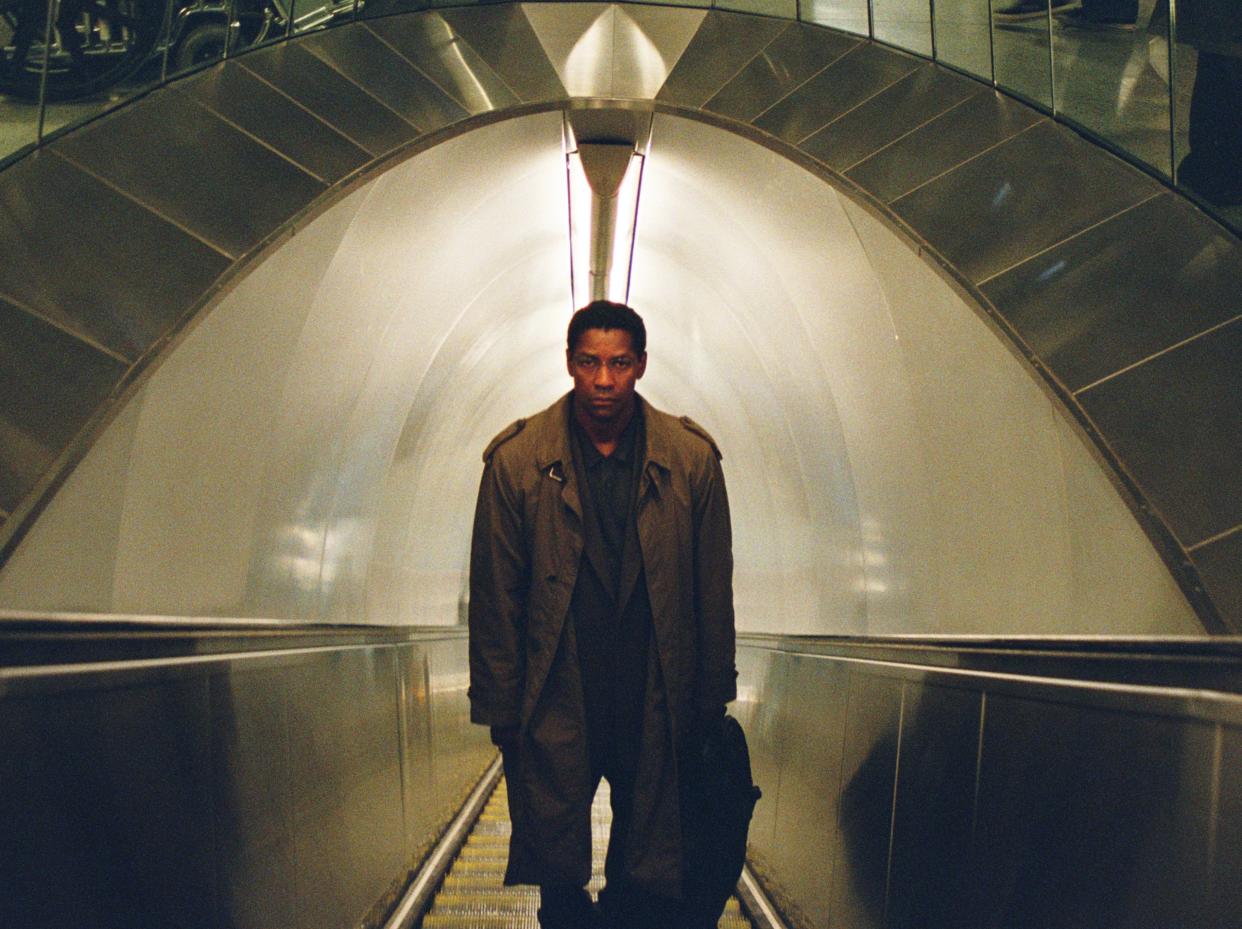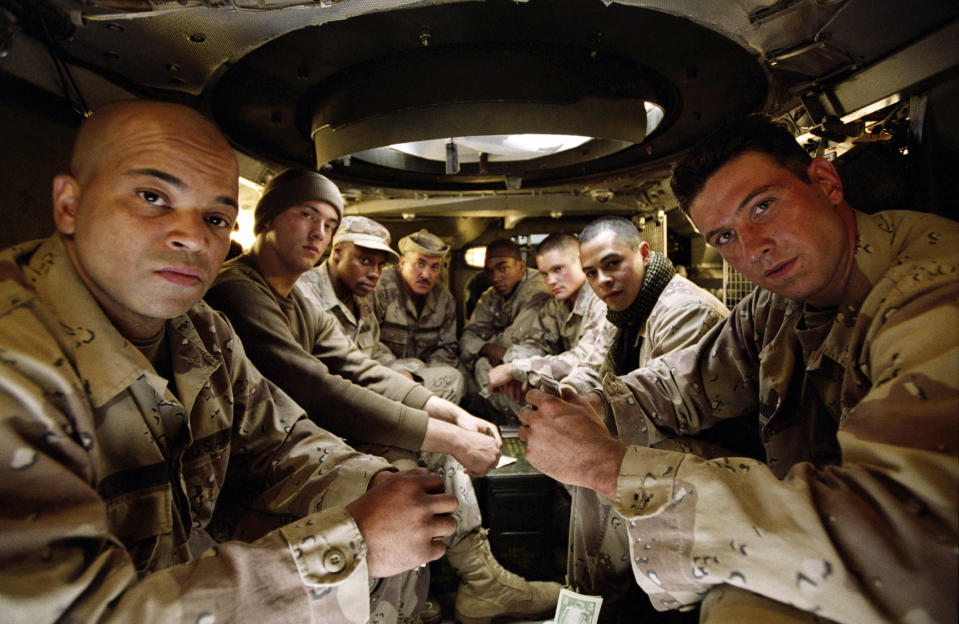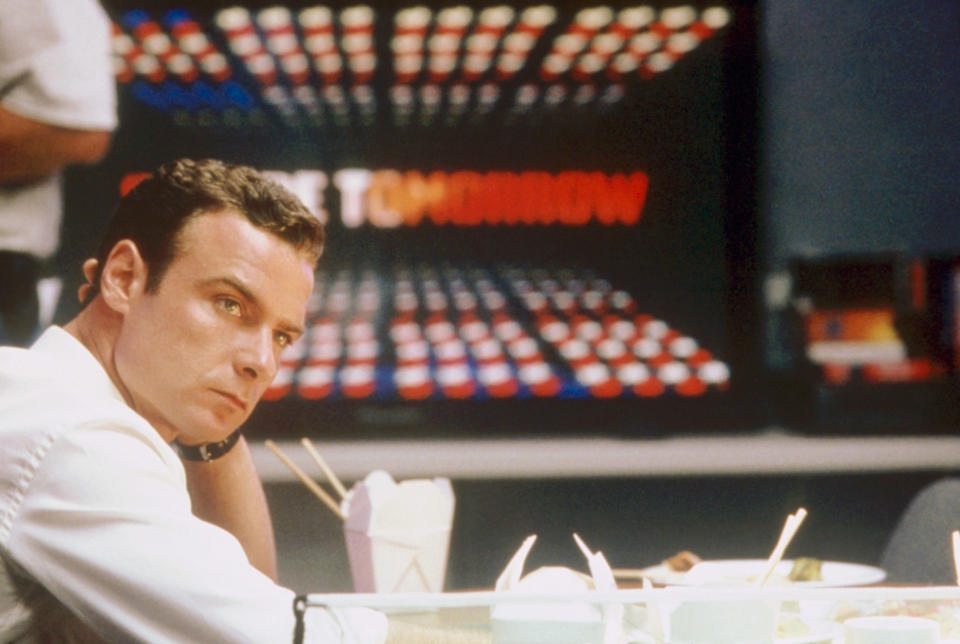20 Years Later, Jonathan Demme’s ‘The Manchurian Candidate’ Was Scarily Prescient — and Just Plain Scary

In 1982, Jonathan Demme directed a lovely TV movie called “Who Am I This Time?” about a shy actor (Christopher Walken) who can only reveal himself on stage in a variety of disparate roles. It’s an emblematic title and idea for Demme himself, a director whose fascination for the viewer lies in the fact that he’s paradoxically both an auteur with a clear signature and a director who tried on different artistic personalities throughout his career. There’s the exploitation guerrilla of the early ’70s (“Caged Heat,” “Crazy Mama”); the humanist drama specialist who made “Melvin and Howard,” “Philadelphia,” and “Rachel Getting Married”; the off-beat hipster comedian (“Something Wild,” “Married to the Mob”); the sensitive documentarian (“The Agronomist,” “My Cousin Bobby”); the live performance specialist (“Stop Making Sense,” “Swimming to Cambodia”); and the steward of well resourced, star-driven literary adaptations and remakes that became Demme’s specialty after his blockbuster success with “The Silence of the Lambs” in 1991.
While the subject matter and scale may vary, the point of view and core preoccupations remained consistent over Demme’s 31-year directorial career. The heart of Demme’s cinema, whether he was paying his dues in Roger Corman’s drive-in factory or directing a structurally ambitious Toni Morrison adaptation, was his persistently curious and empathetic nature.
More from IndieWire
Gwyneth Paltrow Says Bill Clinton Snored Through 'Emma' Screening: 'F*ck You'
Was Paramount Studios Just Lowballed by an $11 Billion Offer?
That’s why one of Demme’s signature visual motifs was an optical point of view shot in which one character conversing with another would look directly into the lens — the technique was most famously used in “Silence of the Lambs,” but it exists throughout Demme’s cinema and is employed in endlessly fascinating ways. A key film in establishing Demme’s use of these intensely subjective point-of-view shots is his 1979 thriller “Last Embrace,” a Hitchcock homage in which the director uses the device both to encourage audience identification and to induce severe discomfort and unease; often characters are talking directly to Roy Scheider’s hero (us), but there are also times when they look into the camera after Scheider has completely left the room — so what’s the point of view? The constant tension between identification and the breaking of that connection is what gives “Last Embrace” its power, and it’s a filmmaking idea Demme would further develop and refine in “The Silence of the Lambs” and his 2004 remake of “The Manchurian Candidate.”

Taken together, “Last Embrace,” “The Silence of the Lambs,” and “The Manchurian Candidate” form an unofficial trilogy of Hitchcock-influenced thrillers in which Demme steadily absorbs the master’s cinematic language into his own; in “Last Embrace” the influence is explicit in the form of visual quotations from “Psycho,” “Vertigo,” and “North by Northwest,” but by the time “Manchurian Candidate” rolled around the references were more subtle, effective, and complex. “The Silence of the Lambs” looms larger in the cultural firmament, but “The Manchurian Candidate” is Demme’s crowning achievement as a genre stylist and the most effective synthesis between the political concerns of his documentaries and his greatest strengths as a dramatist. Its recent reissue as a special edition 4K release provides the perfect opportunity to discover or reevaluate a film that was politely received in its time but which has only grown more prescient and resonant with every passing year.
“The Manchurian Candidate” is, of course, a remake of John Frankenheimer’s 1962 classic, though it’s probably more accurate to call it another adaptation of Richard Condon’s 1959 novel; Demme and screenwriters Daniel Pyne and Dean Georgaris wisely avoid most of the 1962 film’s most famous set pieces and replace them with contemporary corollaries and shifts in emphasis that retain the spirit of the Frankenheimer film without competing with it. Considering how beloved the original film was and is among cinephiles, the fact that Demme’s reimagining met with decent reviews is somewhat surprising (and must have been a nice change of pace for Demme after the critical shellacking he took on his previous film, a remake of “Charade” called “The Truth About Charlie”). What even the most astute commentators of the time could not have grasped, however, was how firmly Demme had a grip on where the culture was headed — his vision of a populace bombarded by electronic stimuli that erode rational thought and a balanced perspective has proven to be more relevant than even Demme himself likely imagined.
At the time he was making the film in 2003, Demme felt like he was playing catch-up with current events. Although the movie revolves around an incident in the first Gulf War, the movie was conceived before the invasion of Iraq, and thus, Demme and his screenwriters scrambled throughout production to incorporate references to the new war in their film. One of the movie’s most effective devices is a constant cacophony of pundits heard coming from television sets, radios, and computers, often so deep in the sound mix that their exact words can be difficult to make out; the conceit allowed Demme to update the film right up until release, as he re-recorded the political commentary to reflect and satirize the events of the moment. While one might think this would date the film, it actually has the opposite effect — it’s one of the key components that make “The Manchurian Candidate” not only timely but timeless.

For while Demme feared that he was always a step behind the times, he was actually ahead of them in seeing how various forms of “content” would proliferate to a point that would drive many Americans to a state of constant psychic chaos. “The Manchurian Candidate” revolves around Major Bennett Marco (Denzel Washington), a Gulf War veteran plagued by nightmares that make him believe an act of heroism he and his fellow soldiers witnessed by now-Vice-Presidential candidate Raymond Shaw (Liev Schreiber) didn’t actually happen — a theory that gains credence when Marco finds an implant in his body and begins to believe that he and his colleagues are being manipulated by a multinational corporation whose tendrils reach into every facet of American politics and business. (The company, Manchurian Global, is the film’s sly replacement for the original movie’s communist government.)
It’s not really a spoiler to reveal that Marco’s suspicions are proven correct, but what’s interesting about the film is that he’s a hero whose mind is never clear — he’s constantly operating on limited sleep, manipulated by forces beyond his control, and his grip on reality is compromised by an inability to step aside from the visual and aural clutter that fills his world. Demme’s camera, as usual, provides a direct link between Marco’s state of mind and the viewer’s, both through an abundance of those optical point-of-view shots and through production design that acts as an extension of the chaos in Marco’s head — his apartment, for example, is an onslaught of set decoration comprised of what seem to be thousands of old newspapers and other unnecessary but proliferating items. Although the movie is filled with conversations, its effect is the opposite of what one usually experiences while watching “talky” films; there’s a jittery kinetic energy at every moment because, in nearly every scene, there are layers of media going on behind and around the characters. TVs are constantly running in the background, along with electronic billboards and computer printers spitting out documents; like Marco, we never really get a moment for reflection or contemplation, and by the time the film’s harrowing climax rolls around, we feel as unsettled and assaulted by chaos as our compromised hero.
The jolt one gets from watching “The Manchurian Candidate” in 2024 comes from realizing that while Marco is driven nearly insane by his surroundings, he’s living in a state that we all now experience for most of our waking hours. The sensory overload that makes Marco crazy felt slightly heightened in 2004, like “The Manchurian Candidate” was a science fiction film taking place in the near-future. Now, the onslaught of content and information — much of it unreliable — that we get from our constantly refreshing devices has made us all Major Marco, a haunting notion given where “The Manchurian Candidate” goes. Frankenheimer’s original was one of the more disturbing and bleaker American films of its era, and Demme’s movie is even darker (a coda designed to take some of the sting out of the chilling climax is the film’s one perfunctory and unsatisfying moment). Yet, as dark as it seemed in 2004, we really had no idea that the fate Demme envisioned for the doomed Bennett Marco was even more frightening than it seemed — because it was our own.
“The Manchurian Candidate” is newly available in a 4K special edition from Kino Lorber Studio Classics.
Best of IndieWire
Sign up for Indiewire's Newsletter. For the latest news, follow us on Facebook, Twitter, and Instagram.

 Yahoo News
Yahoo News 
